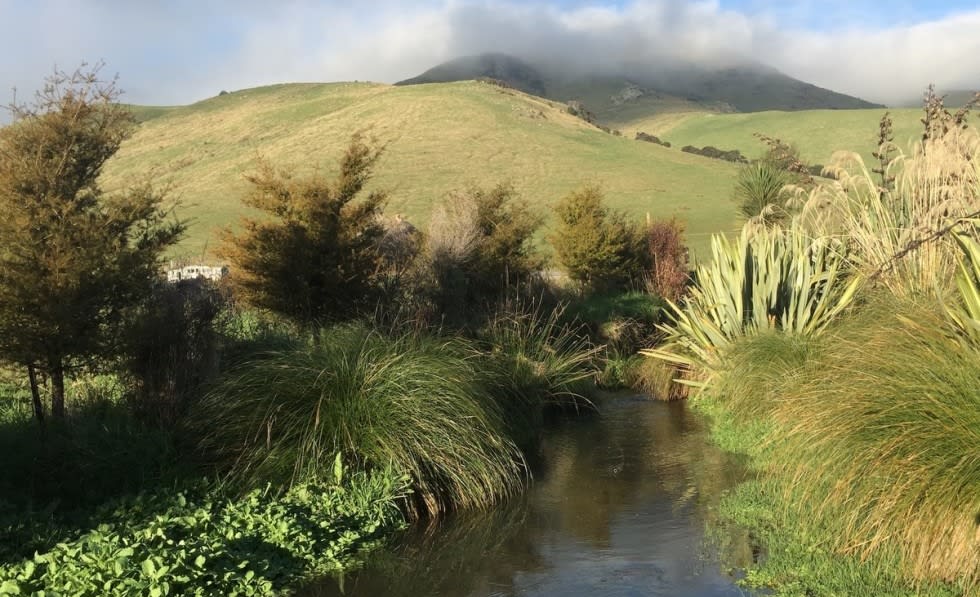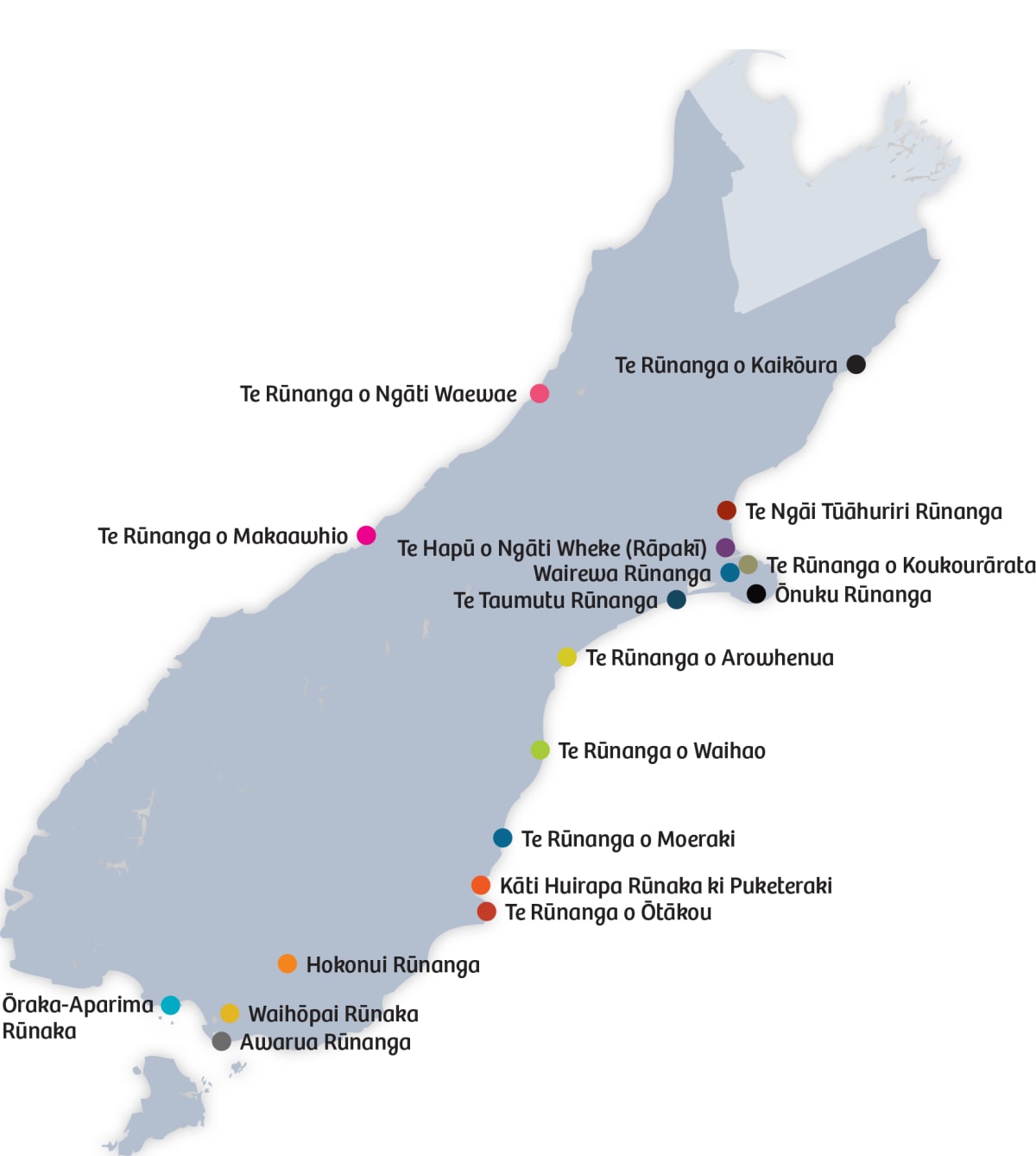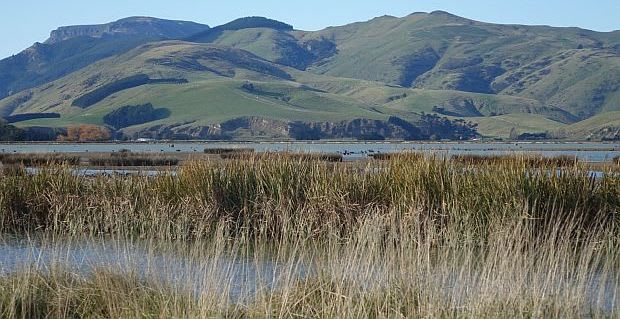
A first, fragile attempt at Māori co-governance is tearing apart, as Ngāi Tahu threatens to walk away from its partnership with three of the South Island's biggest councils.
The villagers of Koukourārata on Banks Peninsula drink out of the creek. "My wife and I used to live there and the water taste depended on what carcass was in the creek," says Te Maire Tau. "They're still drinking creek water. It's just appalling."
He has little time for those southern councils that say they have managed their Three Waters infrastructure well, when they're not even piping safe drinking water to families and children in most of Ngāi Tahu's 18 villages.
"Just right next to our house, we have Woodend stormwater running through our village, running through our creeks and our food places, past the cemeteries and wāhi tapu. And no engagement with our tribe," Tau says.
"We've also got the biggest waterway in the South Island, Lake Ellesmere, with stormwater and other toxins going through our waterways. So really, we pay for everyone's water services, and for the nation's costs. Christchurch City Council, their sewerage pond is on lands that they confiscated off our tribe in 1956, which was actually set aside as a fishery easement. It's just not good enough in this age."
Ngāi Tahu frustration has come to a head this month. Iwi representatives have written to the mayors of Waimakariri, Christchurch and Dunedin to warn that their governance partnership will be jeopardised if the councils continue to "hitch their wagon to a splinter group" opposing the Three Waters reforms – a group that they accuse of racist rhetoric.
"Communities 4 Local Democracy have certainly not got any input at all from any runanga or Māori community within the South Island," says Tau, who is chair of the Ngāi Tahu freshwater group Te Kura Taka Pini. "It's as simple as that.
"We don't like Communities 4 Local Democracy. And simply one of the reasons is they haven't engaged, but we're also quite aware of quite racist comments that have been coming through from them."
Yesterday, presented with a list of the projects that could not proceed without the involvement of the local runanga, Dunedin City Council voted to withdraw from the Communities 4 Local Democracy group. Te Maire Tau is also in talks with Christchurch mayor Lianne Dalziel, and is ready to suspend relations with Waimakariri.
Dan Gordon, the mayor of Waimakariri, is deputy chair of the Communities 4 Local Democracy group and is suing the Government, on behalf of 31 councils that oppose the water reforms.
"Our chair has given notice that we're not satisfied with the position they've taken," says Tau, whose family lives at Tuahiwi Marae in Waimakariri. "So we haven't attended the last meeting and we'll be following through. We'll be hardening our position, I expect."
The council group's defenders accuse Ngāi Tahu of "bully-boy tactics".
But Tau says councils throughout the South Island have signed up to the group and its "racism" without regard to their first duty to consult the manawhenua. He is urging councils to pay heed to the 50-50 co-governance structure for Three Waters infrastructure, proposed in the Department of Internal Affairs' reforms.
Under the Three Waters reform, four new regional corporations will be created to take on the water services – drinking, waste and storm water – owned by New Zealand's 67 city and district councils. There will be an even iwi-local government split on the new corporations' representative bodies, which would in turn appoint the corporations' directors.

The co-governance structure that is welcomed by iwi has also been rejected by some rural and provincial council leaders. Westland mayor Bruce Smith claimed (wrongly) that the proposal gave a right of veto to a Māori minority; Waikato Regional Council chair Russ Rimmington said “the Māori” would control water in Waikato from Lake Taupō to Port Waikato, and that farmers like himself would be at their “beck and call”.
Even this week, after being forced to apologise for his comments, Rimmington doubled down. "I'm still giving bloody apologies, left, right and centre," he says. "It's not democratically elected, you see, because they're 17 percent, to be honest, of our population. And what they're advocating is 50 percent. And originally, it was a power of veto as well, to really stick the boot in ... I think it's got to be rationalised.
"The structure that the Government was proposing under Minister Mahuta, that would be dangerous," Rimmington adds. "I think it would be disproportionate, and I don't think it's the will of the people."
Tau singled out Rimmington's stance for criticism. Ngāi Tahu has hailed the reform model and its alignment with iwi boundaries as groundbreaking, arguing it will put pressure on other government departments such as the Department of Conservation and the Ministry for the Environment that have been less responsive to Māori.
Dan Gordon, the mayor of Waimakariri, says: "Waimakariri District Council is committed to advocating for a better reform model. We are a founding member of Communities 4 Local Democracy and are proud of the work we are contributing to with other partner councils."
All the councils in the group see the importance of developing strong and meaningful partnerships with iwi Māori for the future of Three Waters, he adds.
"Our group is committed to genuine partnership with mana whenua and a reform proposal that is durable, supported and fit for purpose. It is important reform at this level is supported across the sector. Communities 4 Local Democracy represent a significant percentage of the local government sector and over 1.4 million New Zealanders.
"We are seeking a pause so we can work with the Government on a way forward that works for everyone. A vital part of this is developing a true partnership with mana whenua with hui and kōrero about how we best achieve this."
Twelve of the 18 Ngāi Tahu villages don't have treated, reticulated drinking water

In a legal first, the big South Island iwi has already lodged a statement of claim in the High Court seeking recognition of rangatiratanga over its awa and moana, to address what it says is the ongoing degradation caused by the environmental mismanagement.
And Ngāi Tahu Kaiwhakahaere Lisa Tumahai has written to the Prime Minister urging the Government to stick to its guns on the water reforms, in face of local opposition from the 31 councils in the Communities 4 Local Democracy group.
Department of Internal Affairs deputy chief executive Michael Lovett says it is not appropriate for him to comment on the discussions between Ngāi Tahu and Dunedin, and other councils. "This is a matter between iwi and councils, and it is for them to determine the relationship."
Ngāi Tahu's support for the reforms is reflected in many other iwi around the country. In Marlborough, Te Rūnanga a Rangitāne o Wairau general manager Corey Hebberd has told Newsroom that the reforms ensure that water assets remain in public ownership. "I would argue that for all the rhetoric around the community, with iwi having 50 percent presence around the governance table, that actually provides an additional safeguard against privatisation."

And in Auckland, Ngāti Whātua Ōrākei hopes the water reforms will also provide an important opportunity for greater iwi input into decision-making that affects the health of the iwi's people and their environment. "We have suffered greatly from decisions made without us," says Ngarimu Blair, the iwi trust's deputy chair. "We look forward to having a greater say in future.
"Ngāti Whātua Ōrākei has suffered historically from raw sewage overflows at its historic village when the city sewer pump discharged in front of the Ōkahu papa kāinga and urupā. There are still periodic overflows in heavy rains.
"Water reform will enable greater rapid investment in infrastructure to clean up our beautiful Waitematā while ensuring affordable and safe drinking water across the whole Ngāti Whātua tribal lands from Maunganui in the north to Tāmaki."







